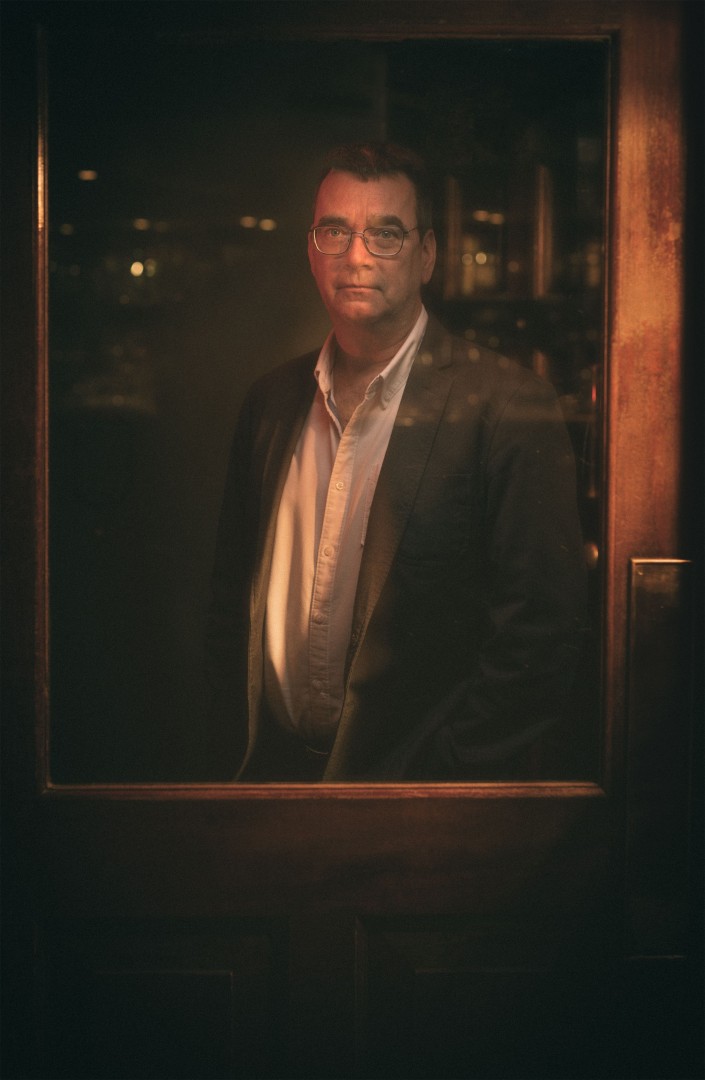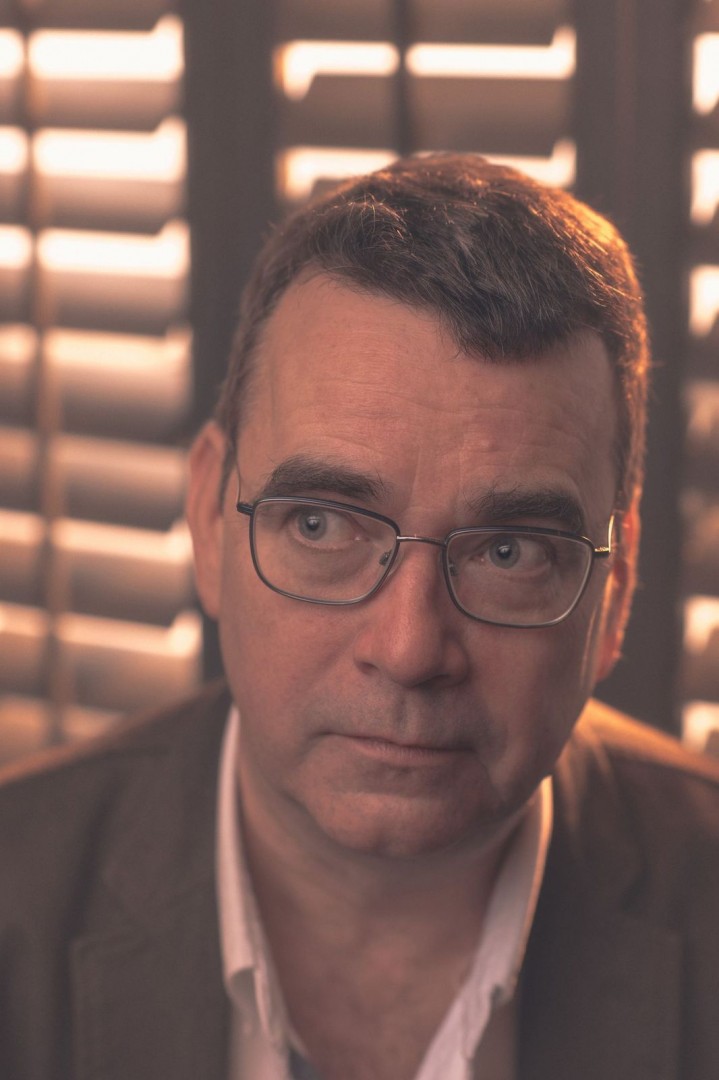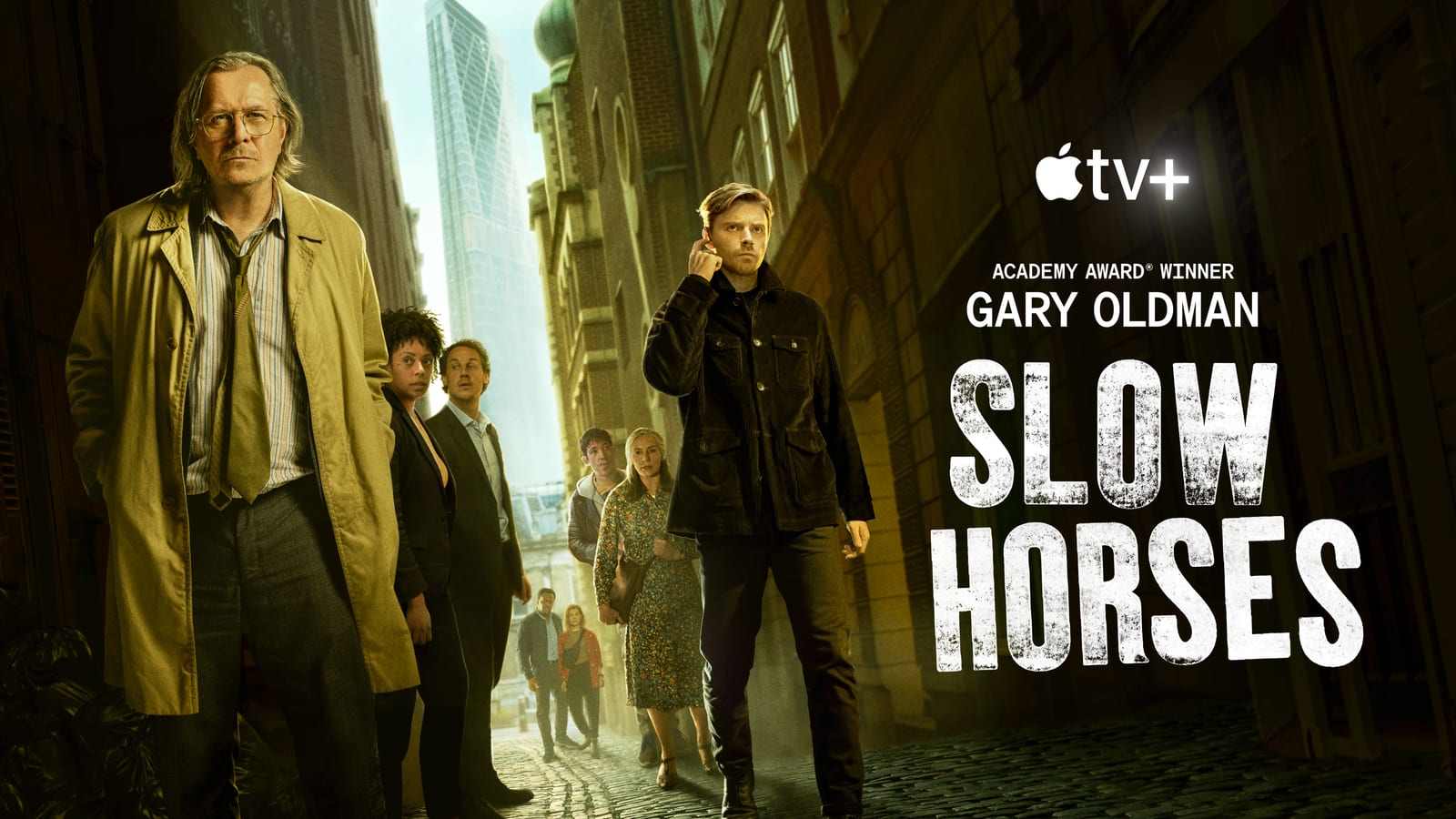Since coming across Mick Herron’s contemporary thrillers during lockdown, I have devoured his work. The Slow Horses series has recently been adapted by Apple TV. Starring Gary Oldman, it’s a white-knuckle watch and I’d encourage its many fans to explore Herron’s other writing, including the wonderful Oxford-set Boehm books.
When I saw that Herron was speaking at this year’s Oxford Literary Festival I think I actually squealed. Not only are his characters fully realised in all their glory and all their gory, the pace is supercharged, the humour biting, plots are whip-smart, and his descriptions of place are satisfyingly vivid, which leads to my first question…
How important is location to writing?
Location is important to me – I doubt I’d have embarked on the Slow Horses series, for example, if I hadn’t encountered what I now think of as the ‘actual’ Slough House, near where I worked back in the 00s. But that said, I’ve tended to base my books in places where I happen to be when I’m writing them. I don’t seek out interesting backdrops.

You moved to Oxford to read English at Balliol. Why do you think so many people stay on in the city?
For my own part, it was largely inertia, I’m afraid – I was planning my next move, a process I’m not entirely sure I ever completed. I can’t speak for anyone else, but it’s not difficult to find reasons why people might choose to remain here. It’s a beautiful city.
Reading your books, I would guess your politics are left-leaning. How do you feel about being interviewed by Lord Patten for The FT Weekend Oxford Literary Festival?
It’s an absolute privilege. Lord Patten’s previous interviewees at the OLF include Seamus Heaney, Jung Chang and Mario Vargas Llosa – how could anyone be other than immensely flattered? Besides, I suspect most voters my age, whatever their leanings, recognise the front-bench figures of the 80s and 90s as models of integrity and veracity compared to their dismal contemporary counterparts.
Will you be attending any of the other Festival events or talks, and if so which?
I certainly will, though I haven’t yet made a list. But Val McDermid’s at the Sheldonian, speaking to Professor Dame Sue Black. No one in their right mind would miss the opportunity to hear Val.
What are you currently reading?
I’m busy with two as-yet unpublished novels and a volume of verse. The poetry is Hannah Sullivan’s second collection, Was It For This, a worthy follow-up to her extraordinary debut, Three Poems. The first of the novels is Francis Spufford’s Cahokia Jazz, which will appear later this year. I’m lucky enough to be one of its early readers. As for the second, I’m required, at this stage of its existence, to be its sole reader: it’s called The Secret Hours, and I’ll deliver it to my publisher soon(ish). It’s out in September.
I wonder, after some years of writing without the acclaim you so clearly merit, what are your pinch-me moments?
One of the oddities of the slow-burn career is precisely that: that it’s slow-burn. Few moments land out of the blue. Most come well-flagged, with one of the professionals who take care of such things – publisher, editor, agent, etc – giving advance warning that such and such will happen. The rare surprises include the occasional award, when everything hinges on the opening of an envelope, and – to cite a specific case – a phone call I received just before Christmas 2021, when I learned that Mick Jagger would write and perform the Slow Horses theme tune. But most of the best moments are about unexpected connection with a readership. A week or so after Spook Street was published, when I was still something of a trade secret, I was leaving a London pub with my partner and we ran into an acquaintance of hers, whom I’d never met. “I can’t stop to chat,” this estimable woman said, “because I have to get home right now to finish this new book I’m reading…”
What is it like seeing your characters brought to life on screen and what role did you play in the adaptation?
I have a consultant’s role, and spend a fair amount of time in the writers’ room which precedes each set of scripts being written. It’s been one of the most positive experiences of my career – working alongside a caravan of talents, all of them intent on putting the best possible version of the books onto the screen. So many others have been involved that I’m barely responsible for the finished result, though I continue to Hoover up all the credit I can… I’ve been thrilled by the series. The writers, the directors, the amazing cast: few writers have had such luck.
Can I ask you about Roddy Ho? Do you have any filter or does he write himself? Asked with the greatest respect; he is so completely repugnant and it feels like you really relish his pathetic self.
If my characters wrote themselves, I’d have a lot less work to do. As it is, the way I write involves submerging myself into the character I’m focused on, and allowing them to express themselves. How tolerable a person I am when I’m writing a Roddy scene I’ll leave it to others to answer, but he’s arguably the most popular of the slow horses, in my readers’ estimation. Well, him and Catherine. Catherine is the heart and soul of Slough House. Roddy is the heart and soul of Roddy, with a bod to die for and a brain the size of a cathedral. Plus the dance moves, the fashion sense, the razor-sharp wit … Form a queue.

I read in a Guardian interview that you were: “furious about the government’s bluster, the “chest-beating” and the endless claims that Britain is “world-beating and everyone else was looking on in envy”. What does the phrase Best of British mean to you?
The NHS. The BBC. Our public library system. To provide a little context, the remarks you quote were a response to the witless crowing of the then-Prime Minister in the early stages of the pandemic. Since Britain ultimately suffered one of the highest death tolls in Europe, and is currently enduring its slowest economic recovery, I stand by every word.
Finally, your books so accurately reflect modern life in Britain. I’ve read that you mainly avoid the digital world and you don’t have social media. Can I ask what lead to this decision?
Common sense … Well, that or laziness. Also, and most importantly, I have a limited amount of creative energy at my disposal, and prefer not to squander it on Twitter or Instagram or whatever. People once seemed puzzled when told I had no social media presence. These days, they’re mostly envious.
Chancellor’s Lecture: A Life of Crime
Mick Herron Interviewed by Chris Patten
6pm, 29 March 2023 at The Sheldonian Theatre
For tickets and further information about this and all events, visit oxfordliteraryfestival.org









